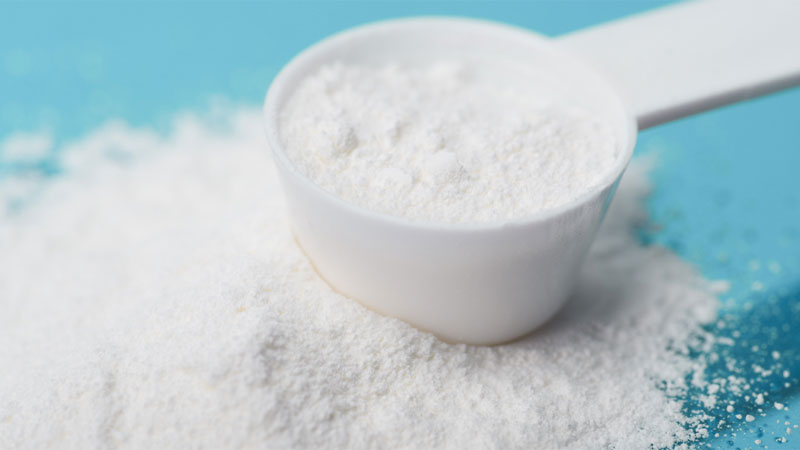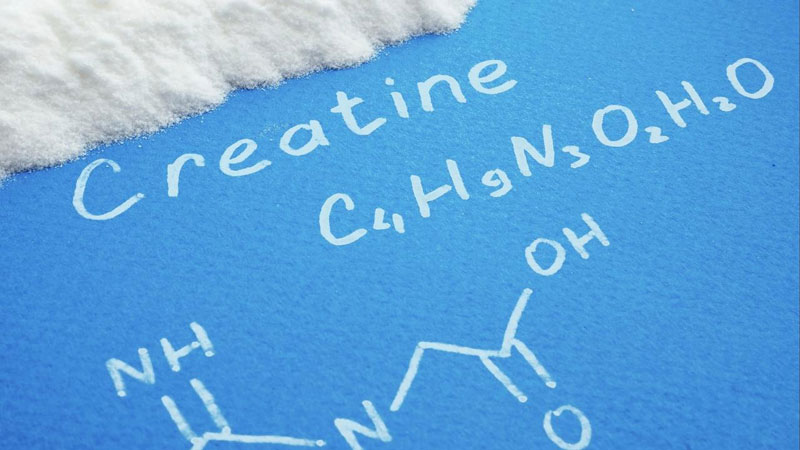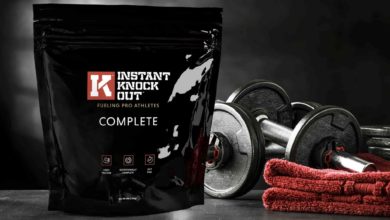
Low dose creatine is becoming more popular amongst bros every day. But what even is it? And how does it differ to regular dosages? SpotMeBro takes a look at the science to find the answers…
Article brodown:
- What is creatine?
- Why should you take creatine?
- How does low dose creatine work?
- Does low dose creatine help boost performance?
- Conclusion
What is creatine?
Creatine (Cr) is a naturally occurring compound used by our muscles for energy. In a nutshell, it helps us produce more ATP, which can be broken down to provide firepower for high-intensity exercise. Think athletic movements like sprinting or powerful bad*ss lifts.
We typically get Cr via our diet – more specifically from foods like meat, fish, and eggs. However, many athletes or people looking to build muscle supplement their diet with it too.
As a supplement, it’s one of the most tested substances on the planet. So, it’s one of the only ones we know actually works.
Hell – creatine is that good for improving athletic performance there are even people out there who think it should be banned. But screw those guys. Here’s why…
 Why should you take Creatine?
Why should you take Creatine?
Every year more and more studies are released praising the benefits of creatine supplementation.
According to the ISSN “Creatine monohydrate is the most effective ergogenic nutritional supplement currently available to athletes with the intent of increasing high-intensity exercise capacity and lean body mass during training.” [1]
Scientifically proven pros of Cr supplementation include:
- Improved high-intensity workload
- Better strength and power
- Increased anabolic signaling process (more muscle mass)
- Elevated mental sharpness
- Reduced myostatin levels (growth inhibitor for muscle growth)
Seriously, who wouldn’t want a double-scoop of those?
But the benefits don’t end there, bro.
Here’s a more in-depth look into what research has shown so far…
- Running capacity and ‘critical velocity’ increases up to 23%
- Maximum oxygen consumption (VO2 max) by over 10%
- Body fat reductions due to training capacity by 3%
- Improved lean muscle mass by 1.4 kg
- Increases in overall training volume by 12%
Key point: Creatine is a supplement proven to improve athletic performance
[/infobox]
How does low dose creatine work?
Low dose creatine supplementation is when an athlete decides to skip the loading phase entirely. Therefore, rather than filling the muscle to saturation point with 20-25 g a day over three to five days, they take a much lower amount.
This can be around three to five grams per day for 28 days [2]. Then, once creatine stores are saturated, a three-gram daily dose is usually continued.
Opting to not load means that it takes much longer for muscle creatine content to increase. So, although an athlete’s levels will improve, they’ll not experience the same rapid benefits as loading.
According to the ISSN, “…this method would only result in a gradual increase in muscle creatine content compared to the more rapid loading method and may, therefore, have less effect on exercise performance and/or training adaptations until creatine stores are fully saturated” [3].
Opting for a lower dose can also put less stress on the digestive system, while also reducing bloating due to water retention. For this reason, people with sensitive stomachs often prefer a lower dose.
[infobox]Key point: Low dose creatine supplementation is the act of consuming under five grams daily and not undergoing a loading phase
[/infobox]
 Does low dose creatine help boost performance?
Does low dose creatine help boost performance?
Simply put, yes. Studies have shown that low dose creatine can boost performance.
The scientifically proven pros of taking low dose Cr include:
- Improved muscle power output [4]
- Better resistance to fatigue [5]
- Increased maximal strength and endurance [6]
Here’s a closer look at the studies…
Improved muscular power output is shown in elite soccer players
One study into the effect of low dose, short-term creatine supplementation in elite youth soccer players showed it improved muscle power output.
Using a double-blind test, 19 male soccer players around 17 years old were randomly given either Cr or a placebo. The athletes were also monitored performing a 30s Wingate Anaerobic Test before and after supplementation.
According to the researchers, they saw significant increases in total work from the Cr supplemented group. Apparently, this was related to positive effects low dose creatine had on muscle power output.
Better resistance to fatigue shown in healthy adults
Another study also suggests that low dose creatine improves resistance to fatigue. To discover this, researchers took 20 healthy men and women and randomly assigned them Cr for a six-week period. The test itself was carried out in a double-blind placebo fashion.
Each test subject was routinely monitored performing knee extension exercises, while body composition measurements were also taken. According to the researchers, they found that;
“Ingesting a low dose (≈2.3 g/d) of creatine for 6 wk significantly increased plasma creatine concentration and enhanced resistance to fatigue during repeated bouts of high-intensity contractions.”
Increased strength and endurance
To assess the effect of low-dose Cr supplementation without a loading phase, scientists randomly assigned 36 men into three groups. One was given a placebo, another three grams (lose dose) of Cr, and the remaining group five grams.
The groups were then tested for maximum muscle strength, upper body endurance, and ab muscle endurance. At the end of the 35-day testing period, every single group showed significant improvements in the max strength test.
Yet, as expected, the guys who took creatine saw the most gains. According to the researchers, “These results support a number of earlier studies that demonstrated that creatine supplementation at low doses and without the use of the loading phase are effective for increasing maximal strength and endurance of upper limbs.” [6].
[infobox]
To summarize, yes, low dose creatine can help boost performance. While it might not be as significant as higher doses, it is effective and could be beneficial for athletes.
[/infobox]
 Conclusion on low dose creatine
Conclusion on low dose creatine
Low dose creatine is a less aggressive approach to supplementation that sees results. While it might not offer the immediate benefits of higher doses, it is a viable option for people who prefer it.
Users of low dose creatine supplementation report that it is less likely to cause bloating and can be much easier on the digestive system. If you have a sensitive stomach and/or digestive system, low dose Cr might be the better option for you.
However, to experience the full benefits of creatine supplementation, leading authorities still suggest a loading phase. The muscle stores can simply saturate much quicker, meaning you can benefit more rapidly.
References
- Kreider R, et al. International Society of Sports Nutrition position stand: safety and efficacy of creatine supplementation in exercise, sport, and medicine. J Int Soc Sports Nutr. 2017
- Hultman E, et al. Muscle creatine loading in men. J Appl Physiol. 1996
- Kreider R, et al. International Society of Sports Nutrition position stand: safety and efficacy of creatine supplementation in exercise, sport, and medicine. J Int Soc Sports Nutr. 2017
- Yáñez-Silva A, et al. Effect of low dose, short-term creatine supplementation on muscle power output in elite youth soccer players. J Int Soc Sports Nutr. 2017
- Rawson E, et al. Low-dose creatine supplementation enhances fatigue resistance in the absence of weight gain. Nutrition. 2011
- Vilar Neto J, et al. Effects of Low-Dose Creatine Monohydrate on Muscle Strength and Endurance. Asian J Sports Med. 2018
More science-backed supplement Knowledge you might like:
- Boost Testosterone with Natural Supplements: In-Depth Review
- Is It Possible to Build Muscles Without Taking Any Supplements?
- Can You Take Creatine and Pre-workout At the Same Time?






